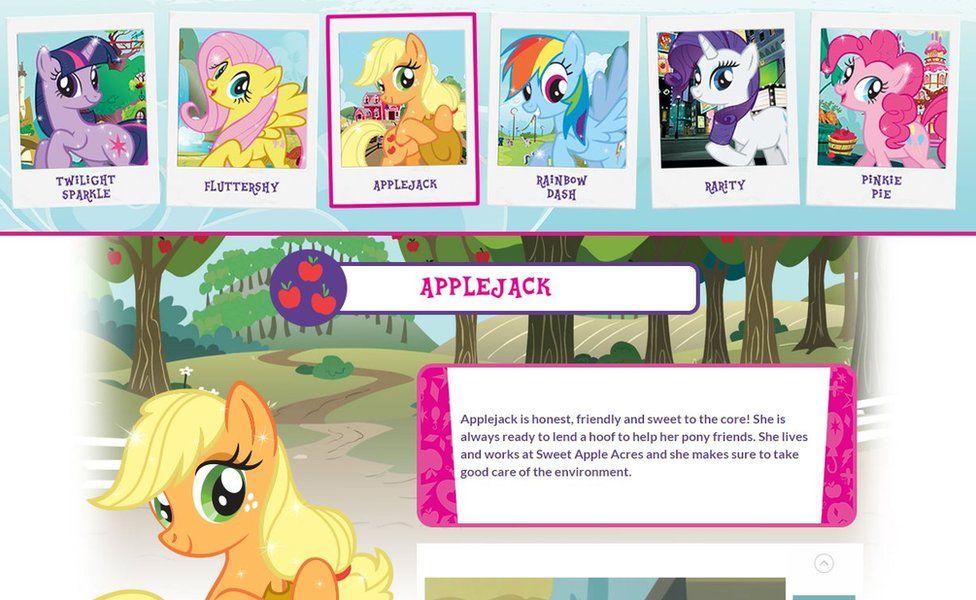My Little Pony toymaker sued over alleged font misuse
- Published

Toymaker Hasbro is being sued by a fonts company over allegations it used a typeface to market its My Little Pony products without permission.
Minneapolis-based Font Brothers says the manufacturer failed to buy a "special licence" to allow the font's use on its toy packaging and related services.
The company is seeking damages of $150,000 (£104,820) per infringement.
A spokeswoman for Hasbro was unable to comment.
News of the case was first reported by the Torrentfreak news site.
Inspired by Disney
Font Brothers says Hasbro refused to pay the appropriate licensing fees "despite several demands for such action".
The disputed typeface is Generation B - a "playful and offbeat" font inspired by the opening titles of 1961 Walt Disney film The Parent Trap, it says.
Font Brothers charges $20 (£14) for its use on a desktop computer, but its fees rise according to the number of people likely to see it.
The font is still being used by the official My Little Pony website, whose underlying code had confirmed the designers were aware of its name..
A lawyer representing Hasbro declined to provide more information, and the company's legal team has yet to file a response to the allegations.
One lawyer said such disputes were not unusual, but seldom made it into the public eye.
"More than 99% of all intellectual property cases are settled well before they ever end up in court," said Dai Davis, a solicitor who previously represented a company whose font was used on an American clothes-maker's products without permission.
"Generally, they are less emotionally charged than 'who said what to whom' cases because they are more factually based - either someone has a unique typeface that has been taken and used, or not."
- Published7 February 2015
- Published14 September 2013
- Published26 September 2012